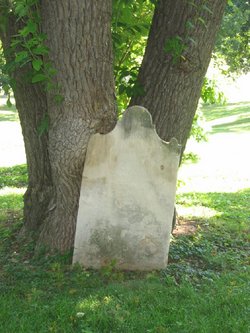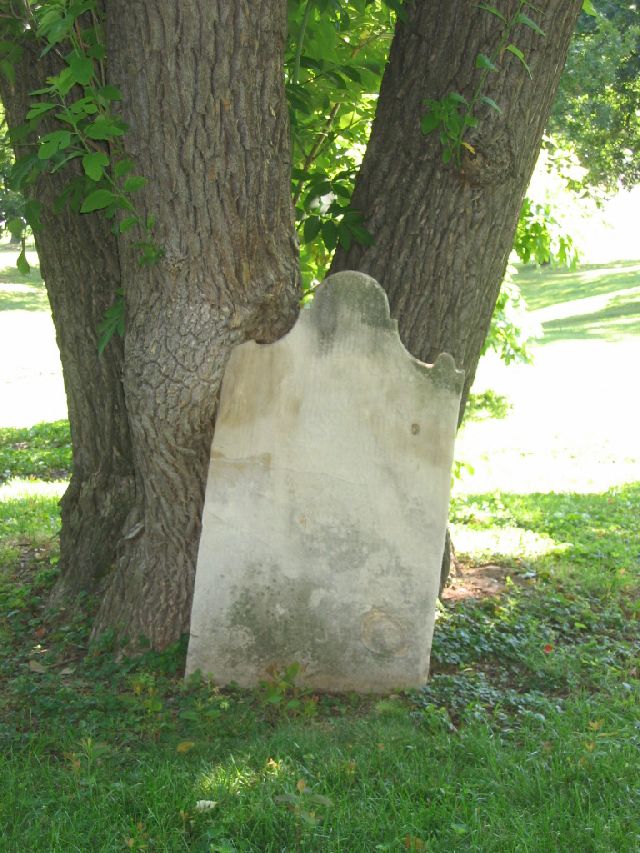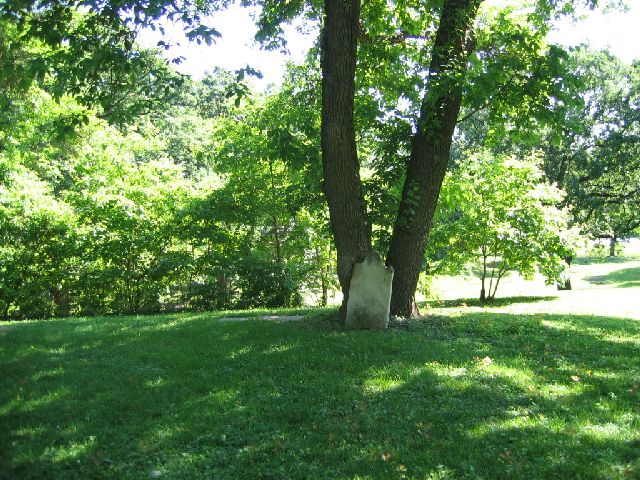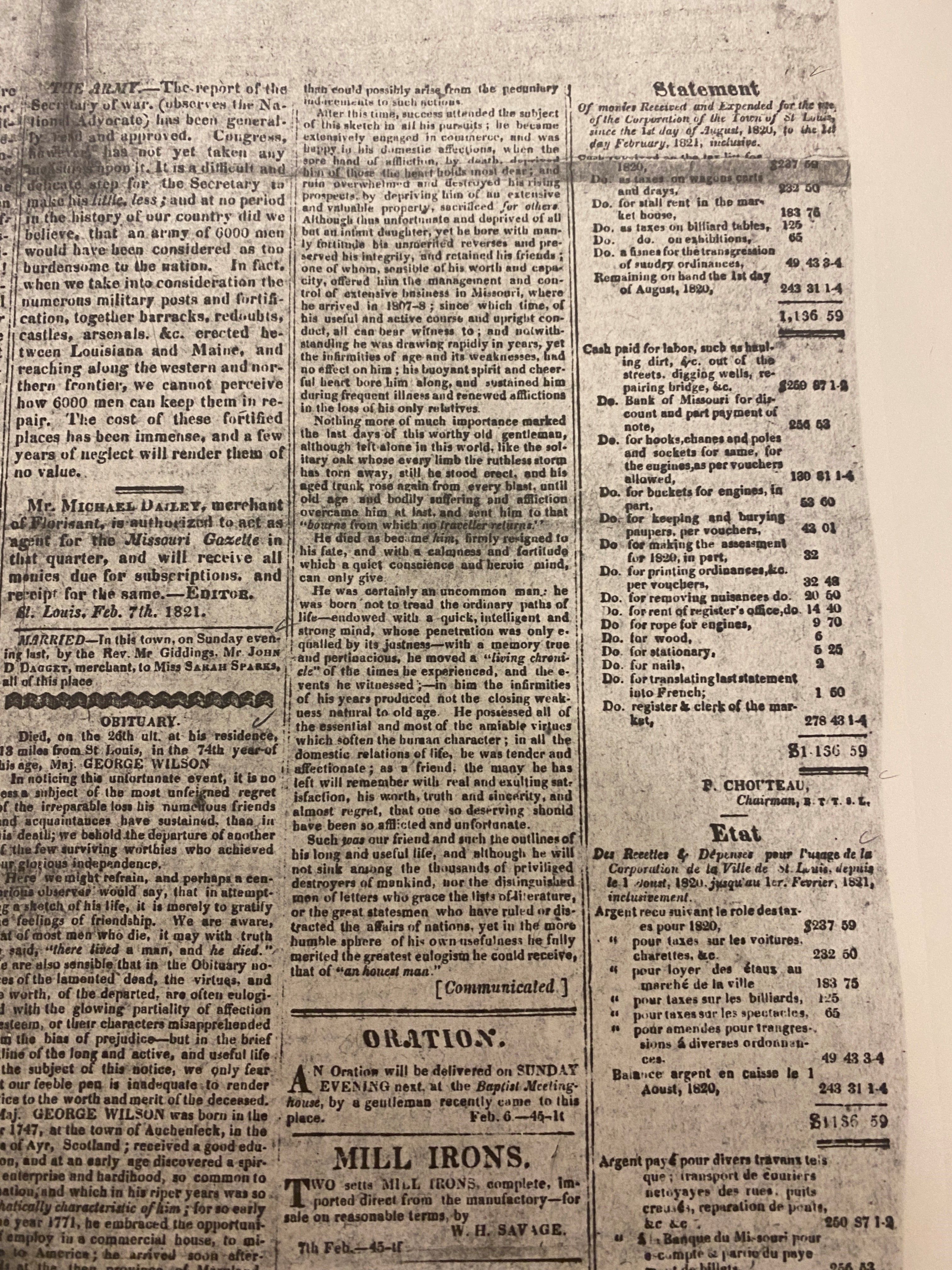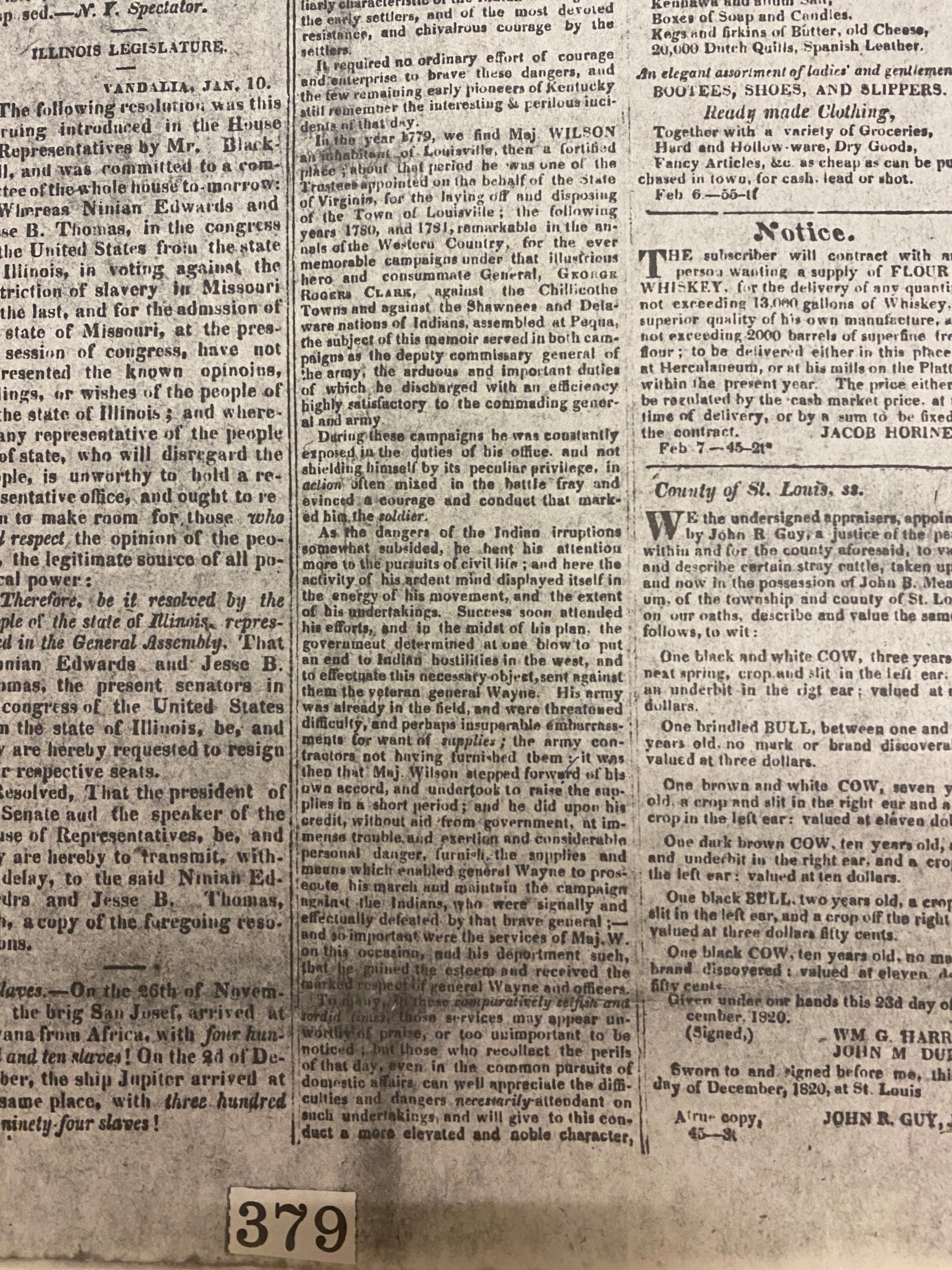Missouri Gazette, Feb. 7, 1821, pg. 3, col. 4
OBITUARY
Died, on the 26th uil. (January 26, 1821) at his residence, 18 miles from St. Louis, in his 74th year of his age, Maj. GEORGE WILSON.
In noticing this unfortunate event, it is no less a subject of the unfeigned regret of the irreparable loss his numerous friends and acquaintances have sustained, than in his death; we beheld the departure of another few surviving worthies who achieved our glorious independence.
Here we might refrain, and perhaps a censorious observer would say, that in attempting a sketch of his life, it is merely to gratify the feelings of friendship. We are aware, that of most men who die, it may with truth be said, "there lived a man, and he died." We are also sensible that in the Obituary notices of the lamented dead, the virtues, and the worth, of the departed, are often eulogized with the glowing partiality of affection and esteem, or their characters misapprehended from the bias of prejudice – but in the brief outline of the long and active, and useful life of the subject of this notice, we only fear that our feeble pen is inadequate to render justice to the worth and merit of the deceased.
Maj. GEORGE WILSON was born in the year 1747, at the town of Auchenleck (sic), in the shire of Ayr, Scotland; received a good education, and at an early age discovered a spirit of enterprise and hardihood, so common to his nation and which in his riper years was so emphatically characteristic of him; for so early in the year 1771, he embraced the opportunity of employ in a commercial house, to migrate to America; the arrival soon afterwards at the then province of Maryland, where he continued in the ordinary avocations of his pursuits, till the campaign of Lord Dunmore in 1774, where he became engaged in the commissary department, in which he there displayed a capacity which he afterwards employed so usefully to the public, and so honorable to himself.
He continued in Maryland until the year 1776, 1778, 1779, when his ever ardent mind prompted him to penetrate the words of Kentucky, then the seat of savage warfare, and for many years after the theatre of the most indiscriminate cruelty and barbarity, so peculiarly characteristic of the Indian wars against the early settlers, and the most devoted resistance, and chivalrous courage by the settlers.
It required no ordinary effort of courage and enterprise to brave these dangers, and the few remaining early pioneers of Kentucky still remember the interesting and perilous incidents of the that day.
In the year 1779, we find Maj. WILSON an inhabitant of Louisville, then a fortified place; about that that period he was one of the Trustees appointed on the behalf of the State of Virginia, for the laying of and disposing of the Town of Louisville; the following years 1780 and 1781, remarkable in the annals of the Western Country, for the ever memorable campaigns under the illustrious hero and consummate General GEORGE ROGERS CLARK, against the Chillicothe Towns and against the Shawnee and Delaware nations of Indians, assembled at Pequa (Peckuwe? Piqua?), the subject of this memoir served in both campaigns as the deputy commissary general of the army, the arduous and important duties of which he discharged with an efficiency highly satisfactory to the commanding general and army.
During these campaigns he was constantly exposed to the duties of his offices and not shielding himself by its peculiar privilege, in action often mixed in the battle fray and evinced a courage and conduct that marked him the soldier.
As the dangers of the Indian irruptions somewhat subsided, he lent his attention more to the pursuits of civil life; and here the activity of his ardent mind displayed itself in the energy of his movement, and the extent of his undertakings. Success soon attended his efforts, and in the mist of his plan, the government determined at one blow to put an end to Indian hostilities in the west, and to effectuate this necessary object, sent against them the veteran General Wayne. His army was already in the field, and were threatened difficulty, and perhaps insuperable embarrassments for want of supplies; the army contractors not having furnished them; it was then that Maj. Wilson stepped forward of his own accord, and undertook to raise the supplies in a short period; and he did upon his credit, without aid from government, at immense trouble, and exertion and considerable personal danger, furnished the supplies and means which enabled general Wayne to prosecute his march and maintain the campaign against the Indians, where signally and effectually defeated by that brave general; and so important were the services of Maj. Wilson on this occasion, and his deportment such, that he gained the esteem and received the marked respect of general Wayne and officers.
To many, in these comparatively selfish and sordid times, those services may appear unworthy of praise, or too unimportant to be noticed; but those who recollect the perils of that day, even in the common pursuits of domestic affairs, can well appreciate the difficulties and dangers necessarily-attendant on such undertakings, and will give to this conduct a more elevated and noble character,
Missouri Gazette, Feb. 7, 1821, pg. 3, col. 5
than could possibly arise from the pecuniary indictments in such actions.
After this time, success attended the subject of this sketch is all his pursuits; he became actively engaged in commerce, and was happy in his domestic affections, when the sore hand of affliction, by death, deprived him of those the heart holds most dear; and ruin overwhelmed and destroyed his rising prospects, by depriving him of an extensive and valuable property, sacrificed for others.
Although thus unfortunate and deprived all but an infant daughter, yet he bore with manly fortitude his unmerited reverses and preserved his integrity, and retained his friends; one of whom, sensible of his worth and capacity, offered him the management and control of extensive business in Missouri where he arrived in 1807-8; since which time, of his useful and active course and upright conduct, all can bare witness to; and notwithstanding he was drawing rapidly in years, yet the infirmities of age and its weaknesses, had no effect on him; his buoyant spirit and cheerful heart bore him along, and sustained him during frequent illness and renewed afflictions in the lose of his only relatives.
Nothing more of much importance marked the last days of this worthy old gentleman, although left alone in this world, like the solitary oak whose every limb the ruthless storm has torn away, still he stood erect, and his aged trunk rose again from every blast, until old age and bodily suffering and affliction overcame him at last to that "bourne from which no traveler returns".
He died as became him, firmly resigned to his fate, and with a calmness and fortitude which a quiet conscience and heroic mind, can only give.
He was certainly an uncommon man; he was born not to tread the ordinary paths of life – endowed with a quick, intelligent and strong mind, whose penetration was only equaled by it justness – with a memory true and pertinacious, he moved "living chronicle" of the times he experienced, and the events he witnessed; - in him the infirmities of his years produced not the closing weakness natural in old age. He possessed all of the essential and most of the amiable virtues which soften the human character; in all the domestic relations of life, he was tender and affectionate; as a friend the many he has left will remember with real and exulting satisfaction, his worth, truth, and sincerity and almost regret, that one so deserving should have been so affected and unfortunate.
Such was our friend and such the outlines of his long and useful life, and although he will not sink among the thousands of privileged destroyers of mankind, nor the distinguished men of letters who graced the lists of literature, or the great statesmen who have ruled or distracted the affairs of nations, yet in the more humble sphere of his own usefulness he fully merited the greatest eulogium he could receive, that of "an honest man"
Missouri Gazette, Feb. 7, 1821, pg. 3, col. 4
OBITUARY
Died, on the 26th uil. (January 26, 1821) at his residence, 18 miles from St. Louis, in his 74th year of his age, Maj. GEORGE WILSON.
In noticing this unfortunate event, it is no less a subject of the unfeigned regret of the irreparable loss his numerous friends and acquaintances have sustained, than in his death; we beheld the departure of another few surviving worthies who achieved our glorious independence.
Here we might refrain, and perhaps a censorious observer would say, that in attempting a sketch of his life, it is merely to gratify the feelings of friendship. We are aware, that of most men who die, it may with truth be said, "there lived a man, and he died." We are also sensible that in the Obituary notices of the lamented dead, the virtues, and the worth, of the departed, are often eulogized with the glowing partiality of affection and esteem, or their characters misapprehended from the bias of prejudice – but in the brief outline of the long and active, and useful life of the subject of this notice, we only fear that our feeble pen is inadequate to render justice to the worth and merit of the deceased.
Maj. GEORGE WILSON was born in the year 1747, at the town of Auchenleck (sic), in the shire of Ayr, Scotland; received a good education, and at an early age discovered a spirit of enterprise and hardihood, so common to his nation and which in his riper years was so emphatically characteristic of him; for so early in the year 1771, he embraced the opportunity of employ in a commercial house, to migrate to America; the arrival soon afterwards at the then province of Maryland, where he continued in the ordinary avocations of his pursuits, till the campaign of Lord Dunmore in 1774, where he became engaged in the commissary department, in which he there displayed a capacity which he afterwards employed so usefully to the public, and so honorable to himself.
He continued in Maryland until the year 1776, 1778, 1779, when his ever ardent mind prompted him to penetrate the words of Kentucky, then the seat of savage warfare, and for many years after the theatre of the most indiscriminate cruelty and barbarity, so peculiarly characteristic of the Indian wars against the early settlers, and the most devoted resistance, and chivalrous courage by the settlers.
It required no ordinary effort of courage and enterprise to brave these dangers, and the few remaining early pioneers of Kentucky still remember the interesting and perilous incidents of the that day.
In the year 1779, we find Maj. WILSON an inhabitant of Louisville, then a fortified place; about that that period he was one of the Trustees appointed on the behalf of the State of Virginia, for the laying of and disposing of the Town of Louisville; the following years 1780 and 1781, remarkable in the annals of the Western Country, for the ever memorable campaigns under the illustrious hero and consummate General GEORGE ROGERS CLARK, against the Chillicothe Towns and against the Shawnee and Delaware nations of Indians, assembled at Pequa (Peckuwe? Piqua?), the subject of this memoir served in both campaigns as the deputy commissary general of the army, the arduous and important duties of which he discharged with an efficiency highly satisfactory to the commanding general and army.
During these campaigns he was constantly exposed to the duties of his offices and not shielding himself by its peculiar privilege, in action often mixed in the battle fray and evinced a courage and conduct that marked him the soldier.
As the dangers of the Indian irruptions somewhat subsided, he lent his attention more to the pursuits of civil life; and here the activity of his ardent mind displayed itself in the energy of his movement, and the extent of his undertakings. Success soon attended his efforts, and in the mist of his plan, the government determined at one blow to put an end to Indian hostilities in the west, and to effectuate this necessary object, sent against them the veteran General Wayne. His army was already in the field, and were threatened difficulty, and perhaps insuperable embarrassments for want of supplies; the army contractors not having furnished them; it was then that Maj. Wilson stepped forward of his own accord, and undertook to raise the supplies in a short period; and he did upon his credit, without aid from government, at immense trouble, and exertion and considerable personal danger, furnished the supplies and means which enabled general Wayne to prosecute his march and maintain the campaign against the Indians, where signally and effectually defeated by that brave general; and so important were the services of Maj. Wilson on this occasion, and his deportment such, that he gained the esteem and received the marked respect of general Wayne and officers.
To many, in these comparatively selfish and sordid times, those services may appear unworthy of praise, or too unimportant to be noticed; but those who recollect the perils of that day, even in the common pursuits of domestic affairs, can well appreciate the difficulties and dangers necessarily-attendant on such undertakings, and will give to this conduct a more elevated and noble character,
Missouri Gazette, Feb. 7, 1821, pg. 3, col. 5
than could possibly arise from the pecuniary indictments in such actions.
After this time, success attended the subject of this sketch is all his pursuits; he became actively engaged in commerce, and was happy in his domestic affections, when the sore hand of affliction, by death, deprived him of those the heart holds most dear; and ruin overwhelmed and destroyed his rising prospects, by depriving him of an extensive and valuable property, sacrificed for others.
Although thus unfortunate and deprived all but an infant daughter, yet he bore with manly fortitude his unmerited reverses and preserved his integrity, and retained his friends; one of whom, sensible of his worth and capacity, offered him the management and control of extensive business in Missouri where he arrived in 1807-8; since which time, of his useful and active course and upright conduct, all can bare witness to; and notwithstanding he was drawing rapidly in years, yet the infirmities of age and its weaknesses, had no effect on him; his buoyant spirit and cheerful heart bore him along, and sustained him during frequent illness and renewed afflictions in the lose of his only relatives.
Nothing more of much importance marked the last days of this worthy old gentleman, although left alone in this world, like the solitary oak whose every limb the ruthless storm has torn away, still he stood erect, and his aged trunk rose again from every blast, until old age and bodily suffering and affliction overcame him at last to that "bourne from which no traveler returns".
He died as became him, firmly resigned to his fate, and with a calmness and fortitude which a quiet conscience and heroic mind, can only give.
He was certainly an uncommon man; he was born not to tread the ordinary paths of life – endowed with a quick, intelligent and strong mind, whose penetration was only equaled by it justness – with a memory true and pertinacious, he moved "living chronicle" of the times he experienced, and the events he witnessed; - in him the infirmities of his years produced not the closing weakness natural in old age. He possessed all of the essential and most of the amiable virtues which soften the human character; in all the domestic relations of life, he was tender and affectionate; as a friend the many he has left will remember with real and exulting satisfaction, his worth, truth, and sincerity and almost regret, that one so deserving should have been so affected and unfortunate.
Such was our friend and such the outlines of his long and useful life, and although he will not sink among the thousands of privileged destroyers of mankind, nor the distinguished men of letters who graced the lists of literature, or the great statesmen who have ruled or distracted the affairs of nations, yet in the more humble sphere of his own usefulness he fully merited the greatest eulogium he could receive, that of "an honest man"
Family Members
Advertisement
Explore more
Sponsored by Ancestry
Advertisement
